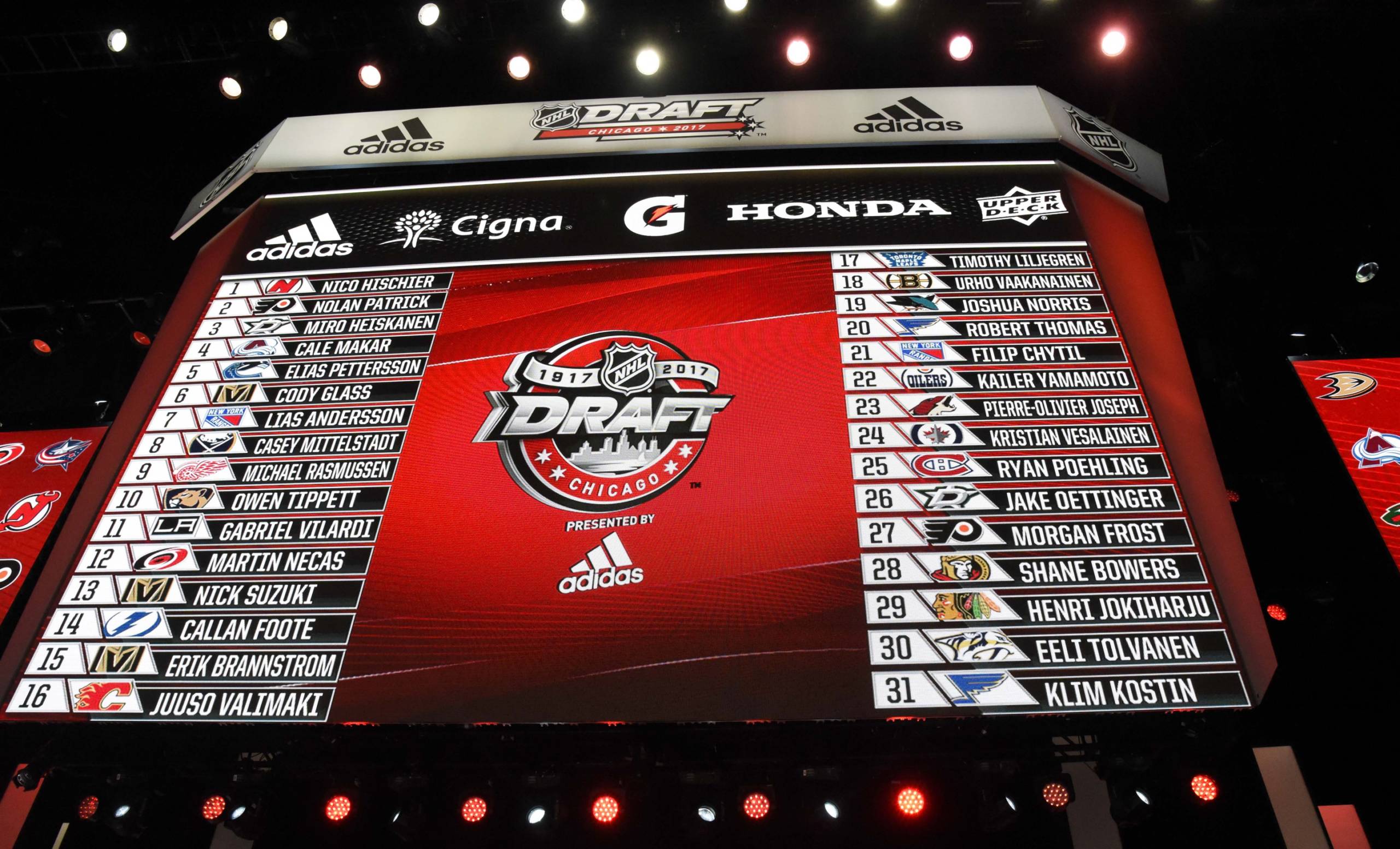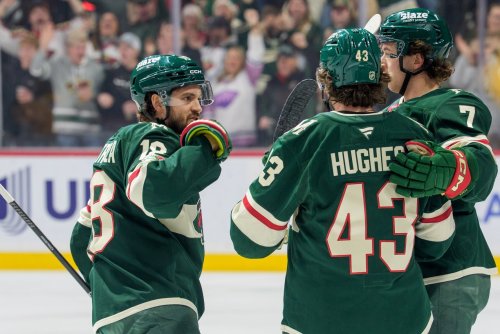
The 2020 NHL Draft Lottery produced no winner. A Team to Be Determined won the Alexis Lafreniere Sweepstakes, leaving a ton of people enraged in the aftermath. Some were angry that a singularly awful team like Detroit could fall from first to fourth overall. Others fumed over the possibility of marquee teams like Pittsburgh or Toronto having a one-in-eight chance at Lafreniere. And more people gave an exasperated eyeroll at the NHL for turning an important night into an Arrested Development joke.
Many rest the blame at the feet of the lottery format, saying it should more strongly favor the worst teams. I disagree. I like how the lottery can change the fortunes of teams in the NHL’s “mushy middle”. Seeing stars like Patrik Laine, Andrei Svechnikov and Miro Heiskanen go to organizations that iced competitive squads is good.
The dissatisfaction with this year’s Draft Lottery isn’t a reason to change it’s format. It’s a symptom of a bigger issue the lottery was implemented to fix in the first place. The Draft is designed to incentivize and reward losing. And that central flaw has been taken to a ridiculous conclusion this year.
Imagine watching your team play a decisive Game 5 in the opening round of the playoffs. It’s overtime, and your star player turns the puck over. A rush goes the other way, and your goalie is beaten. Your team’s season is over, the hopes of seeing a playoff run are dashed.
Are you upset? Or are you cheering, because now your team has a 12.5% shot at Lafreniere?
Here’s a poll The Athletic’s Michael Russo conducted that suggests how Minnesota Wild fans feel on the matter:
Sixty-two percent of the State of Hockey would rather see their team lose a playoff series than advance. Weighing whether a team middling in the standings should give up mid-season is unseemly enough. But this is the playoffs, and a deep playoff run or even a Stanley Cup is theoretically in reach. To have half a fanbase (or 16 of them) look at that and say “nah” is farcical.
But the thing is, I can’t blame those fans. They’re right. If the Wild lose, they’ll have a better shot at Lafreniere (12.5%) than they did at grabbing any of the top three spots in last year’s Draft Lottery. It’s a unique opportunity to acquire a star player, the kind a team like Minnesota hasn’t landed for two decades.
This gets to the second major issue of the draft: It generally gives bad teams a leg up in a rebuild, but it gives no hope to teams stuck in the middle. Perpetually mediocre teams like Minnesota, Montreal or Philadelphia need to get enormously lucky in the right years in order to get franchise-changing talents.
Having the “To Tank or Not to Tank?” discussion in the playoffs is uniquely ridiculous. But it should have no place in the regular season, either. How many fans bemoaned the start of the Blues’ charge to the Stanley Cup because of squandered draft lottery positioning?
https://twitter.com/peter_cappel/status/1084990600125054978
Again, you can’t blame fans for wanting their teams to lose if they feel it's necessary to eventually win. The NHL has set up a system that makes tanking for draft positioning a rational choice. The epidemic of fans wanting their favorite teams to lose will continue until that changes.
The solution to this is clear: Eliminate the Draft. Grant all 18-year-olds the right of free agency and let teams bid for their services.
This would be the most radical jolt to the NHL since unrestricted free agency was instituted in 1995. There would be resistance from a sizable amount of teams, Players Association members and fans. But it makes a ton of sense.
It’d be good for teams, even the ones who would reject this idea out of hand. Any team’s ability to get a franchise-changing superstar like Connor McDavid, Auston Matthews or Nathan MacKinnon relies heavily on losing and luck. Without a draft, any team gets a shot at them. Or any other players. There’s no playing the draft board or praying there isn’t a run on a position you need. There’s no fans cheering when you lose a meaningless game in March.
There’s just your ability to manage the cap, scout and recruit.
A common criticism for this would be that the best players would go only to marquee franchises. And it’s true that there are franchises that will have advantages in recruiting. Teams like New York, Montreal and Toronto are in big, storied markets. There’s no denying the allure there.
But there are limits to this. The NHL has a salary cap and limits a team to 50 contracts. There’s only so much room for Boston or Chicago to sign prospects before running out of money or playing opportunities.
Minnesota has an example of this in their own backyards. The Minnesota Golden Gophers are a historically significant organization with more resources than other NCAA teams. College recruiting is also unbound by anything like a salary cap. Still, St. Cloud State, Minnesota-Duluth and even Minnesota State University have had much more recent success with less resources.
Why? Because even with all those advantages, you still have to be smart. You still have to maintain a program so that players will want to continue to go there.
This also allows teams to spend money on players that will actually be worth the investment. Most NHL players don’t reach the open market until they reach their late 20s or early 30s. They’re getting their first big payday when they are leaving or past their primes.
Proponents argue that delaying a player’s earning power incentivizes them to “earn” a rich contract. But at what cost? Free agency is notoriously inefficient. Dom Luszczyszyn of The Athletic pegs the average NHL free agent contract as being an overpay of almost 40%. Isn’t investing that money in younger players preferable to paying that markup for the likes of David Backes?
This would also be the best thing that could happen for players, long-term. The Draft almost randomly assigns young players to teams, with no say in where they go. Why is that a thing?
Players should get a say in where they go, for their own reasons. Maybe they want to go where they get the biggest financial windfall. Perhaps they see an opportunity for playing time on a given team or a chance to win right away. They might want to be close to home, or live in a particular area or work with a particular coach. None of those considerations factor into where a player goes now.
This hurts the league, as well. The current system forced McDavid and Jack Eichel into playing for two of the league’s most dysfunctional franchises. They have made the playoffs two out of a possible ten times. How does having these two young, marketable stars sitting home for the playoffs every year grow the game?
And think of all the marketing buzz the NHL could generate in free agency! Is any non-diehard fan going to care about who gets to overpay Braden Holtby or Tyson Barrie? No. But how many fans would pay attention if Lafreniere got to do his own version of “The Decision”? It would be infinitely more exciting than flipping cards based on ping-pong balls.
Eliminating the draft would do so much more than remove the incentives for bad teams to lose. It would make teams and fans happy by cutting down on albatross contracts to older free agents. It would let players pick the spots where they have the greatest opportunities to shine. And it would replace a boring Draft Lottery process with something capable of drawing intrigue from non-NHL fans.
Will the NHL do it? Of course not. Again, NHL Free Agency is barely older than SpongeBob SquarePants. They’ll never be on the cutting-edge with something like this.
And that reluctance to try anything fun or new is why the NHL lags behind just about every North American sport. And it’s what led to the league being a laughingstock on Twitter last Friday night.
Think you could write a story like this? Hockey Wilderness wants you to develop your voice, find an audience, and we'll pay you to do it. Just fill out this form.







Recommended Comments
There are no comments to display.
Join the conversation
You can post now and register later. If you have an account, sign in now to post with your account.
Note: Your post will require moderator approval before it will be visible.